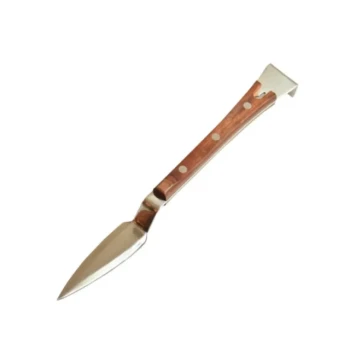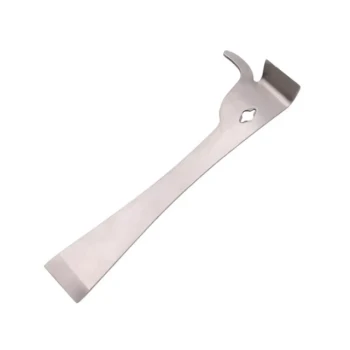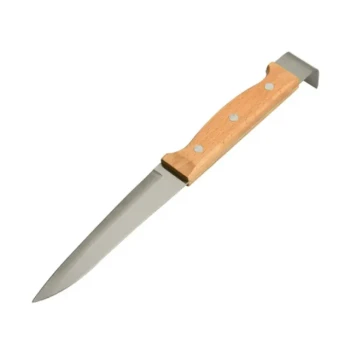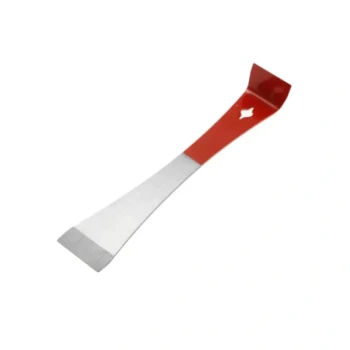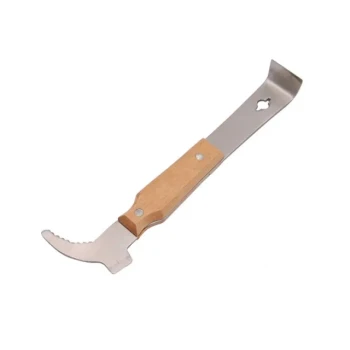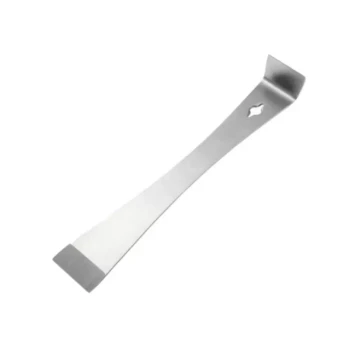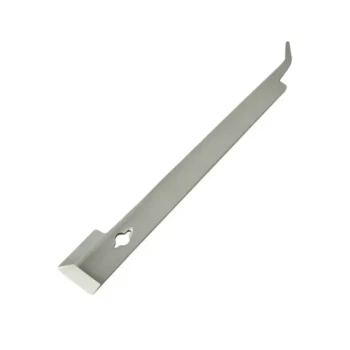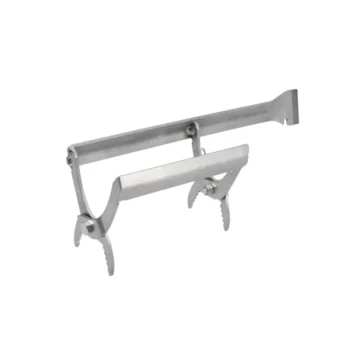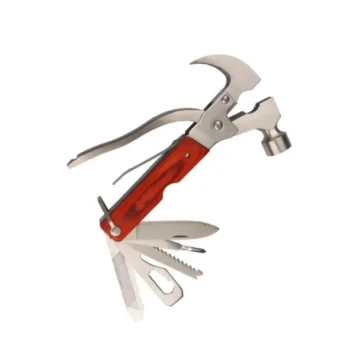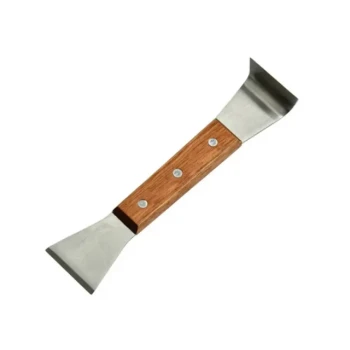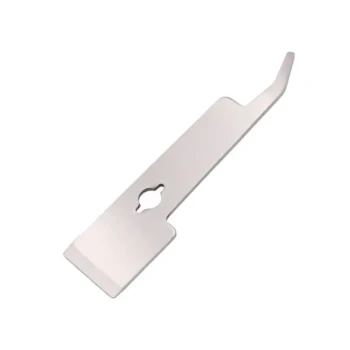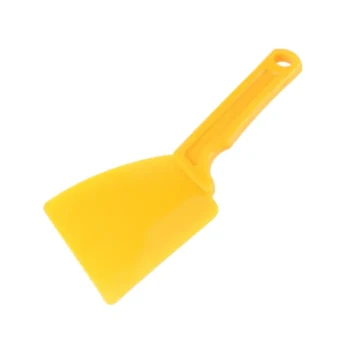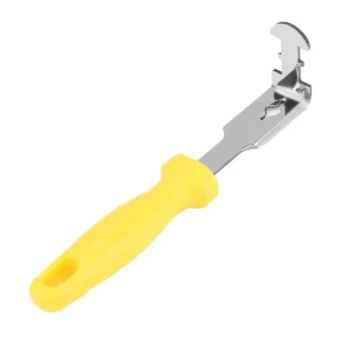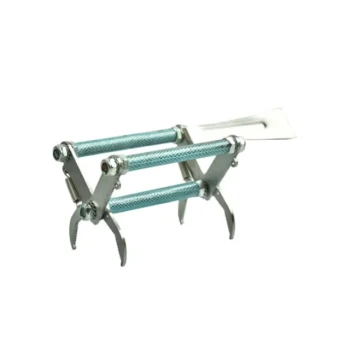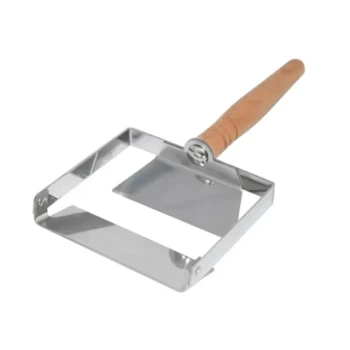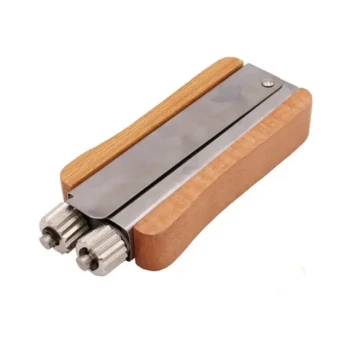At its core, a hive tool is the beekeeper's master key. It is a specialized, multi-purpose steel bar designed to perform three essential functions: prying apart hive components, lifting out frames, and scraping away unwanted wax and propolis. Without it, a beekeeper cannot safely or efficiently access the inside of a modern beehive.
Bees use a powerful, sticky resin called propolis to seal every crack and seam in their hive, effectively gluing it shut. The hive tool is not just a convenience; it is the purpose-built solution to overcome this natural "lock," making hive inspection and management possible.
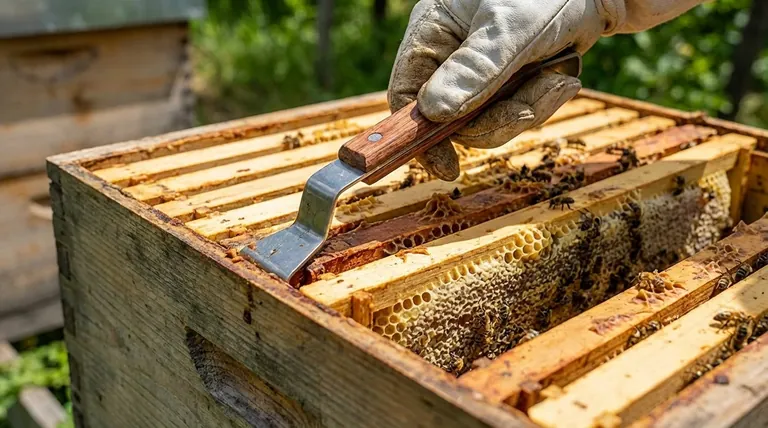
The Hive's Natural "Lock": Understanding Propolis
To understand why a hive tool is indispensable, you must first understand the substance it is designed to defeat: propolis.
What is Propolis?
Propolis, often called "bee glue," is a resinous mixture that honey bees produce by mixing saliva and beeswax with exudates gathered from tree buds, sap flows, or other botanical sources.
Why Bees Use It
Bees use this incredibly sticky and strong substance to seal small gaps and cracks in the hive. This serves to reinforce the structure, reduce vibration, and protect the colony from weather and predators.
The Beekeeper's Challenge
While vital for the bees, propolis effectively glues all the hive's components together. Hive bodies, inner covers, and especially the frames become cemented in place, making them impossible to separate by hand.
The Hive Tool's Primary Functions
The hive tool is a simple device engineered to solve several problems created by the bees' construction habits. It acts as a lever, a scraper, and a lifter all in one.
Prying and Separating Hive Components
The most common use of a hive tool is as a lever. By inserting the flat end between hive bodies or supers, a beekeeper can apply gentle, controlled force to break the propolis seal and separate the boxes for inspection.
Lifting and Releasing Frames
Frames of honeycomb are spaced tightly together, and bees seal the contact points with both propolis and wax. The hive tool is used to pry the first frame loose, creating enough space to lift it out without rolling or crushing bees. Many hive tools include a "J-hook" or "L-hook" specifically for hooking under the frame's top bar and lifting it straight up.
Scraping and Cleaning
The tool's sharp, beveled edge is a highly effective scraper. It is used to clean excess propolis and burr comb (unwanted wax) from frames and hive boxes. This regular maintenance is crucial for keeping components fitting correctly and ensuring frames are easy to manipulate in the future.
Other Versatile Uses
Beyond its main duties, a hive tool is a general-purpose instrument. Beekeepers use it to clear debris from the hive entrance, scrape away pests like small hive beetle larvae, or even clean out the groove on a frame's top bar before inserting a new foundation.
Understanding the Trade-offs: Why Not Just a Screwdriver?
A common mistake for new beekeepers is assuming a simple screwdriver or putty knife can do the job. This approach often leads to frustration and damaged equipment.
The Risk of Damaging Your Equipment
A screwdriver concentrates force on a very small point, which can easily dent, gouge, and splinter the soft wood of hive bodies and frames. A hive tool's wider, flatter blade distributes pressure, protecting your expensive woodenware from damage.
The Lack of Correct Leverage
Hive tools are designed with the specific length and angles needed to provide optimal leverage for breaking propolis seals. A screwdriver lacks the correct shape, forcing you to use awkward angles and increasing the risk of the tool slipping, which can injure you or anger the bees.
The Absence of Versatility
A screwdriver is a one-trick pony. It cannot effectively scrape wide surfaces or hook under a frame to lift it. The hive tool combines all these necessary functions into one purpose-built, efficient device.
Making the Right Choice for Your Goal
While all hive tools serve the same core purpose, slight variations exist. Choosing one is a matter of personal preference and the tasks you perform most often.
- If your primary focus is simplicity and versatility: The standard "J-Hook" style tool is the most popular choice for its ability to pry, scrape, and easily lift frames.
- If your primary focus is heavy-duty prying with maximum leverage: A longer, heavier "pry-bar" style hive tool provides more power for separating tightly sealed or stubborn hive bodies.
Ultimately, the hive tool is the single most important piece of equipment you will hold in your hand, transforming the impenetrable fortress of a beehive into a manageable and accessible colony.
Summary Table:
| Function | Purpose | Key Benefit |
|---|---|---|
| Prying & Separating | Breaks propolis seals between hive boxes | Enables safe hive inspections |
| Lifting Frames | Hooks and lifts frames without crushing bees | Protects the colony and comb |
| Scraping & Cleaning | Removes excess wax and propolis | Maintains equipment and hive health |
Ready to equip your apiary with the right tools for the job?
As a trusted wholesale supplier to commercial apiaries and equipment distributors, HONESTBEE provides the durable, professional-grade hive tools and beekeeping supplies you need to operate efficiently at scale.
Contact our team today to discuss your wholesale needs and discover how our equipment can help your business manage hives more effectively and protect your valuable investment.
Visual Guide
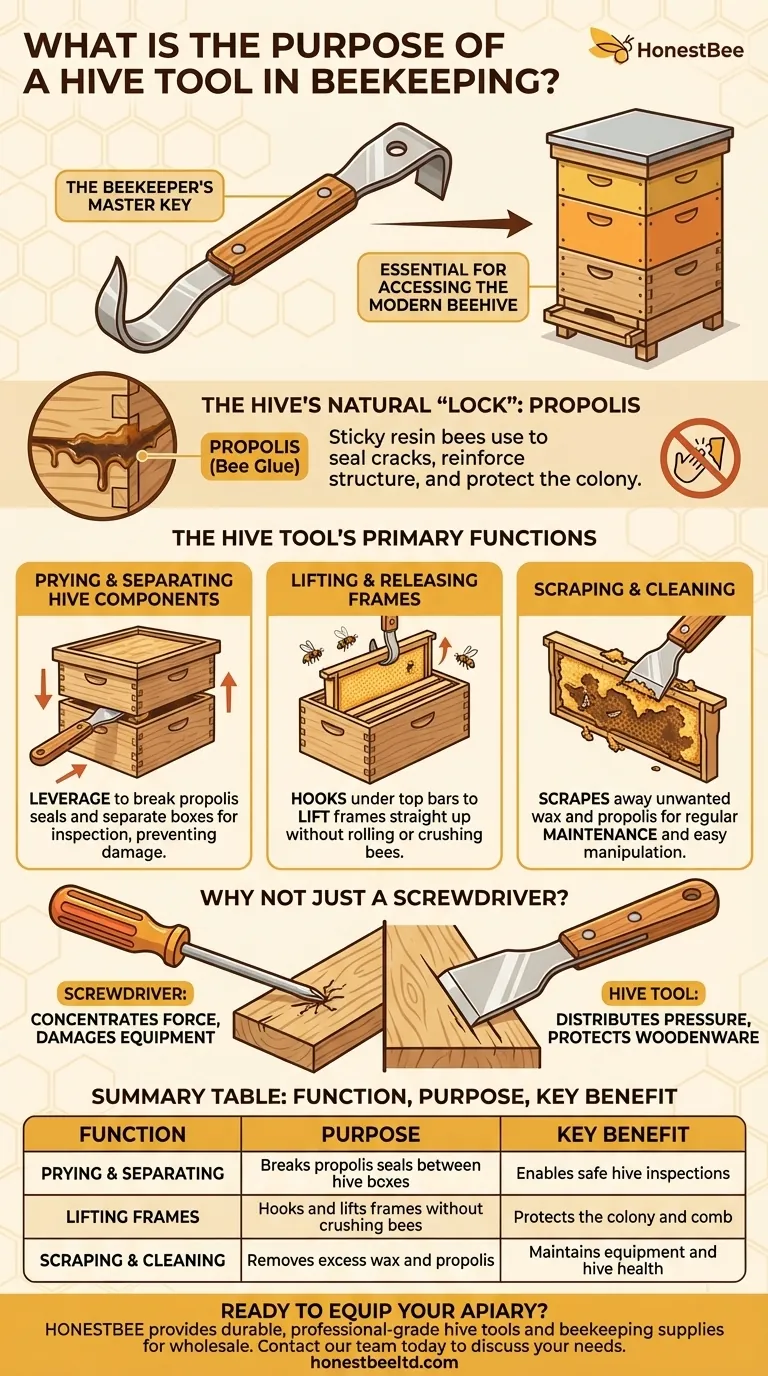
Related Products
- HONESTBEE Premium Italian Style Hive Tool with Hardwood Handle
- Professional Multi-Function Stainless Steel Hive Tool
- Professional Compact Multi-Function Uncapping Knife for Beekeeping
- HONESTBEE Advanced Ergonomic Stainless Steel Hive Tool for Beekeeping
- HONESTBEE Professional Long Handled Hive Tool with Precision Cutting Blade
People Also Ask
- What temperature is too cold to open a beehive? Protect Your Hive from Fatal Cold Shock
- What is a hive tool used for in beekeeping? Your Essential Guide to Hive Management
- How can a hive tool be used to remove propolis and burr comb? Master Hive Maintenance for a Healthy Colony
- Is it advisable to manage a large number of hives alone? The Risks of Solo Beekeeping at Scale
- What should be checked during a hive inspection? A Guide to Assessing Colony Health
